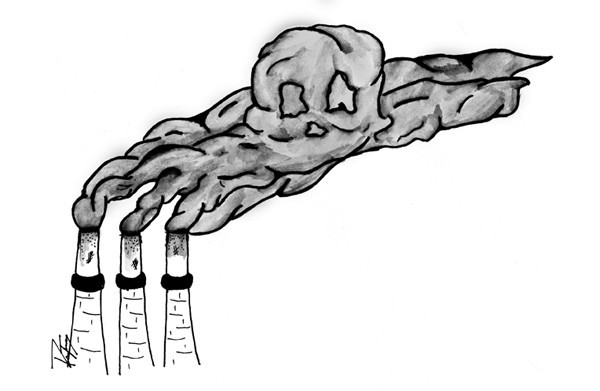Cap-and-trade likely to prevail over carbon tax system
Canada waiting for U.S. enviro stance so we can play along
The general environmental consensus is that Canada needs to improve its record and stick to the Kyoto or Copenhagen agreements. By this point, the country knows its environmental options for big businesses: either cap-and-trade or implementing a carbon tax. But what exactly does each mean, and which is better?
The carbon tax is the simpler of the two methods. The federal government would simply apply a tax for carbon emissions, and the amount taxed would vary between business sectors. Any further specifics would be worked out in the drafting of legislation.
Cap-and-trade is more difficult to wrap one’s head around. The government would set a maximum amount of allowed emissions per year. Businesses that emit less than the cap receive “permits” equivalent to the amount they score below the cap. Businesses could then sell those permits to businesses that struggle to meet the cap, thereby profiting by not polluting.
Cap-and-trade is a more complex system for two reasons: First, it introduces a new market that would be subject to government regulation and therefore ongoing efforts to supervise this carbon market. Second, some political analysts and economists have speculated that the carbon markets could become big international business.
So far, Canada’s official stance has been to hold off and see which system the United States opts for.
Dennis Cunningham, project manager at the International Institute for Sustainable Development, believes cap-and-trade is the best system for Canada to take part in.
“Cap-and-trade makes the most sense if we’re going to make sure we don’t lose competitiveness because there are so many countries [involved].”
The European Union currently has the largest emissions trading system in the world. New Zealand and Australia have systems in the works as well. If Canada wants to be competitive in this market, it has to wait and see what the United States does.
If they do in fact go with cap-and-trade, Canada would likely develop a system similar to theirs in hopes of forming a North American emissions trading market, according to environmental economist and professor at the University of Winnipeg, Soham Baksi.
Baksi said a more basic carbon tax system is preferable to most economists due to the volatility of the cap-and-trade market.
“Market price [for permits] can change from day to day,” Baksi said.
Any taxation system is a tough sell to citizens in the United States and Canada as well.
“Public perceptions around taxes are usually negative, even if it’s a tax with a positive environmental benefit,” said Cunningham. “That’s hard to communicate.”
British Columbia has had its own carbon tax for a year. Similarly, Quebec has a “green levy” to regulate carbon output.
Critics have suggested that the money generated from a federal carbon tax may not be properly distributed and may be put into a wider range of budgets, including social programs unrelated to environmental clean up.
“Ideally, you want revenues to assist in the reduction of greenhouse gas emissions,” Cunningham said.







